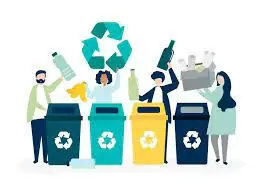
Estimated reading time: 5 minutes
In Europe, the waste management reflects the different economic and infrastructural realities of the member countries. In 2020, each citizen of the European Union produced on average 4,8 tons of waste, Of which only 38% was recycled.
However, this data hides significant disparities: while some countries are moving rapidly towards the goal of a circular economy, others are experiencing greater difficulties. Germany and France, for example, together they produced a third of total EU waste, with 401 and 310 million tonnes respectively.
Italy, in reverse, stands out with a 72% recycling rate for special and urban waste, a result that exceeds the European average of 58%.
Italy has adopted a series of effective measures to optimize the recycling process. Among these, the following stand out:
These policies have led to notable results, such as the efficient management of packaging recycling, which has achieved impressive material recovery rates, and the cutting edge in the recycling of specific materials such as plastic and iron.
To make the waste disposal process more efficient, European countries must move towards some strategic directions:
1. Technological innovation: It is essential to develop new technologies for recycling, especially for complex materials such as plastic and electronic components. Advanced recycling technologies can improve the energy efficiency of waste treatment processes, reducing overall consumption the energy necessary to process waste.
2. Education and Awareness: Increasing environmental awareness among citizens is crucial to improve waste separation and support for recycling policies.
3. International cooperation: Sharing best practices and collaborating on transnational projects can accelerate the transition to a circular economy.
4. Effective Legislation: Clear laws and economic incentives can guide both companies and individual citizens towards more sustainable recycling practices.
Europe is faced with a crucial challenge: that of improve waste management e find new circular economy solutions from a sustainability perspective. In fact, the circular economy, which promotes the efficient use of resources and recycling, has a direct impact on savings energetic. Recycled materials require less energy to transform into new products than producing from virgin raw materials.
Countries like Italy are showing the way with impressive recycling rates and effective policies to contain it the environmental impact of waste. Proper waste management and disposal reduce potential negative impacts on the environment, such as the production of methane (a powerful gas greenhouse) from organic waste in landfill. By controlling and exploiting these gases, production can be achieved the energy while reducing harmful emissions.
Technological innovations, environmental education, international cooperation and effective legislation are the keys to a future in which recycling becomes a consolidated practice, thus contributing to well-being of our planet and future generations.
Staff BlogInnovazione.Item: https://www.prontobolletta.it/news/riciclo-rifiuti-europa/
BlogInnovazione.it
Developing fine motor skills through coloring prepares children for more complex skills like writing. To color…
The naval sector is a true global economic power, which has navigated towards a 150 billion market...
Last Monday, the Financial Times announced a deal with OpenAI. FT licenses its world-class journalism…
Millions of people pay for streaming services, paying monthly subscription fees. It is common opinion that you…